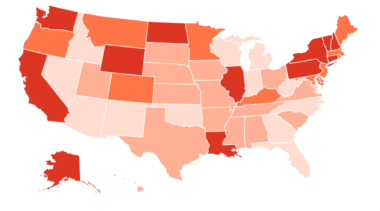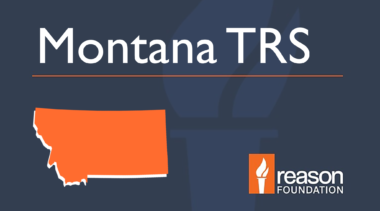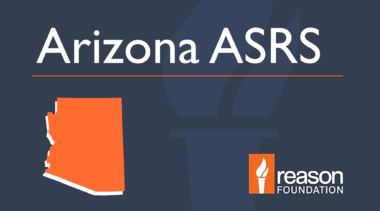-
Fuel tax rebates for newly tolled Interstates: A quantitative assessment
The purpose of this policy study is to assess the feasibility of providing fuel tax rebates for miles driven on reconstructed Interstates financed by toll revenues.
-
Vanpools: The forgotten mode of mass transit
Vanpools are a high-quality, low-cost mass transit option.
-
A primer on carbon taxes
Examining claims that replacing existing regulations, subsidies, and tax expenditures with a carbon tax would more cost-effectively achieve emissions-reductions goals.
-
Evidence-based policies to slow climate change
Top-down policy approaches to control emissions may not be as effective as bottom-up approaches that harness the natural tendency of entrepreneurs and innovators.
-
Examining excess deaths, years of lives lost, and other health consequences during the COVID-19 pandemic
"The non-COVID death toll that has accompanied the pandemic is large, well into six digits."
-
Federal law unconstitutionally prohibits medical marijuana users from possessing firearms
To prevent violations of the Second and Fifth Amendments, Congress should amend the Gun Control Act of 1968 to permit an exception for legal medical marijuana use.
-
K-12 Education Spending Spotlight 2021: An in-depth look at school finance data and trends
Reason Foundation’s 2019 K-12 Education Spending Spotlight provides critical insight into key school finance trends across the country by providing policymakers, researchers, and other stakeholders easy access to K-12 education spending data in every state.
-
Pathways and policy for 21st-century freight rail
The successful development and deployment of automation technologies in the future is key to ensuring freight rail’s ongoing success.
-
Frequently asked questions about long-term airport leases
Why would taxpayers and passengers support the long-term lease of an airport?
-
Study: Leasing 31 U.S. airports would generate $131 billion to fund other infrastructure and pay debt
This study estimates the market value of 31 large and medium U.S. airports as $131 billion in total, including Los Angeles International ($17.8 billion), San Francisco International ($11.9 billion), and Dallas/Ft. Worth International ($11.9 billion).
-
Providing Electronic Toll Collection to the Unbanked and Underbanked
Providing one or more user-friendly tolling options for the unbanked and underbanked is important to ensure economic inclusion for everyone.
-
Prescription Drug Monitoring Programs: Effects on Opioid Prescribing and Drug Overdose Mortality
This study finds that Prescription Drug Monitoring Programs fail to reduce opioid overdoses and increase the use of black market opioids.
-
U.S. Space Traffic Management and Orbital Debris Policy
Public-private partnerships could improve the tracking and removal of space debris and better manage space traffic.
-
Analysis of South Carolina Senate Bill 176
Senate Bill 176 would provide new hires a secure and attractive retirement plan that better protects the state's taxpayers.
-
Analysis of Texas Senate Bill 321
Senate Bill 321 could save the state as much as $15 billion in long term costs and ensure that new employees' retirement benefits are fully funded.
-
The 2021 Texas Power Crisis: What Happened and What Can Be Done to Avoid Another One?
This report focuses on ERCOT and the electric power system because the power outages were the proximate cause of many hardships suffered during the failures.

















